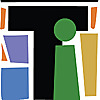
Think Inclusive
6,358 FOLLOWERS
Think Inclusive is an online resource that promotes the full and authentic inclusion of people with disabilities in their schools and communities through education and advocacy. As the official blog of MCIE, we exist to build bridges between families, educators, and people with disabilities to advocate for inclusive education. We do this by publishing content from disabled advocates, parents..
Think Inclusive
3w ago
About the Guest(s):
Ashlynn Rich: Ashlynn Rich is a recent high school graduate with Down syndrome. She graduated with honors and earned the title of scholar-athlete for her involvement in the school’s swim team. She also owns her own small business, Pop Queen Baked Goods. Ashlynn advocates for including students with disabilities in school and the community.
Linda Ramirez: Linda is the mother of Ashlynn Rich. She has tirelessly advocated for inclusive education and has fought for her daughter to be fully included in general education classrooms.
Episode Summary: In this compelling episode of ..read more
Think Inclusive
3w ago
About the Guest(s): Bari Levin is a retired special educator with over 34 years of experience, predominantly working with middle school students with learning differences. She is actively involved with the I Am Able Foundation, focusing on storytelling to remove the stigma associated with neurodiversity. Bari co-leads the We All Learn Differently campaign to foster understanding and empathy for neurodivergent students in middle schools.
Episode Summary: In this episode of the Think Inclusive Podcast, host Tim Villegas interviews Bari Levin, a seasoned special educator and advocate for neurodiv ..read more
Think Inclusive
3w ago
About the Guest(s): Sam Drazin is the founder and Executive Director of Changing Perspectives, a nonprofit organization dedicated to fostering inclusive educational practices. A former elementary school teacher, Sam brings firsthand experience and a deep understanding of the challenges and opportunities in creating inclusive school environments. His organization works with schools nationwide and internationally, providing professional development, consulting, and curriculum resources aimed at building more inclusive classrooms and communities.
Episode Summary: In this thought-provoking episode ..read more
Think Inclusive
1M ago
Think Inclusive is off this week as we prep for the homestretch to season 11.
This week, we have a feed drop for you from our friends at AMI.
It’s called The Pulse.
In this episode: Journalists Amy Silverman and Rebecca Montelion discuss ableism, journalism, and intellectual disability. They explore the importance of plain language in news reporting and the need to include the voices of people with intellectual disabilities themselves. The guests share their experiences working on a pilot project that focused on cognitive accessibility in journalism and highlight ..read more
Think Inclusive
2M ago
About the Guest(s): Dr. Emily King is a licensed psychologist with a background in school psychology and a passion for supporting neurodivergent individuals. Her professional history includes working as a school psychologist and providing consultation services for educators and parents. Dr. King focuses on understanding and supporting diverse learners’ emotional experiences, utilizing her expertise to equip educators with the knowledge and tools to foster inclusive learning environments. She is also an advocate for parent-teacher collaboration, aiming to improve the education system for neurod ..read more
Think Inclusive
2M ago
About the Guest(s): Will Parker hosts “Principal Matters: The School Leaders Podcast.” With a rich background in education spanning over three decades, Will Parker has established himself as a seasoned educator and an influential voice in school leadership. Having served as a high school administrator for over 13 years and then as an executive director for a state Principals association, Parker boasts an extensive understanding of the challenges and triumphs within educational leadership. In his current role, he dedicates himself full-time to Principal Matters LLC, offering consulting services ..read more
Think Inclusive
2M ago
About the Guest(s): Meredith Villines has 20+ years of working in early care and education and is currently at the Oregon Department of Education in the Office of Enhancing Student Opportunities. Meredith’s primary roles have been a classroom teacher in inclusive childcare and preschools, lead teacher in an Early Childhood Special Education classroom, Itinerant Special Early Childhood Education Teacher and Home Visitor, behavior specialist, trainer, and part-time faculty at Portland Community College.
For the past 16 years, Autumn Belloni has focused intensively on working with children from b ..read more
Think Inclusive
3M ago
About the Guest(s): Christina Kasprzak and Dr. Megan Vinh are the Co-Directors of the Early Childhood Technical Assistance Center (ECTA). Christina brings her expertise in leading initiatives to develop equitable and sustainable state systems for children with disabilities and their families. Her personal connection to the cause comes from a family that valued community and respect for all, emphasizing the importance of education in life. Dr. Megan Vinh’s drive is equally personal, vaulting from family experiences into a professional passion for inclusion as a human right. She co-directs not j ..read more
Think Inclusive
3M ago
About the Guest(s): Dr. Jodi Asbell-Clarke is an esteemed figure in the STEM (Science, Technology, Engineering, Mathematics) community, particularly in the realm of game-based learning. With a background enriched by working on the space shuttle program for its first 25 missions, she has been pivotal in linking computational thinking and neurodiversity, offering unique insights into the talents that neurodivergent learners bring to STEM problem-solving. Asbell-Clarke holds a wealth of experience and has dedicated her career to advancing equity and opportunities in STEM education through innovat ..read more
Think Inclusive
3M ago
About the Guest(s): Savitha Sundar, an Occupational Therpaist and Ph.D. candidate, specializes in inclusive practices for students with Extensive Support Needs. With over 15 years in public schools, she’s a champion for inclusive education, leveraging her OT expertise to foster access and participation. At Texas Woman’s University, she mentors future OTs and teaches as an adjunct faculty member. Savitha also serves as the Partnerships Officer at Changing Perspectives, promoting social-emotional learning. She also hosts the podcast “Inclusive Occupations,” inspiring the creation of inclusive co ..read more